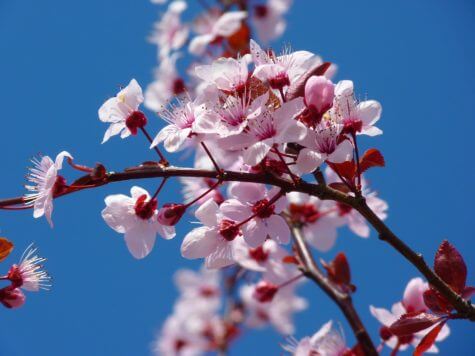
OSHKOSH, Wisc. — Whether you're hot or cold on climate change may depend on where you live in addition to the political party you associate with.
New research from the University of Wisconsin Oshkosh has revealed that Americans may change their opinion on the controversial topic due to their local weather conditions. The study was conducted by Jeremiah Bohr, who had his works published in the Climate Change journal.
Previous studies have already recognized that political views strongly correlate with climate change views. It's no secret that people with conservative opinions are often more likely to deny the findings of scientists who conclude that humans cause the phenomenon.

However, the current study observes that political standpoints regarding climate change tend to vary based on unseasonable weather patterns. “Americans’ attitudes about global warming are affected by whether they reside in states experiencing unseasonably warm (or cold) temperatures versus those experiencing milder temperatures,” the authors write.
For his analysis, Bohr drew data from two different sources. First, he measured climate change opinions of American citizens, sourcing mainstream news networks such as CBS and New York Times. The researchers note that the news surveys were taken in February 2013, March 2013, February 2014 and May 2014. He then studied state average temperatures gathered each month by the National Oceanic and Atmospheric Administration’s National Center for Environmental Information.
Bohr’s research suggests that the so-called “temperature anomalies” only intensify the different political opinions about the cause of climate change. These results are especially apparent when temperatures are five degrees (Fahrenheit) above or below what they were in the previous five years, within the same season.
Interestingly, Bohr found that when it comes to Republicans' views, both establishment conservatives and Tea Party Republicans hold the same belief on climate change during temperature anomalies; but during seasonal temperatures, their beliefs are more likely to diverge.
“This would be consistent with the elite cues hypothesis, in that we would expect political leaders who deny anthropogenic global warming to claim victory during unseasonably cold periods, or amplify their denial during unseasonably warm periods that invite challenge to their worldview,” Bohr says in a news release.
Additionally, Bohr says that “political polarization” increases during more uncommon temperature shifts or weather events. “These are precisely the locations and moments when partisan differences over the role of human activity in global warming may resonate most,” he adds.











1 Comment